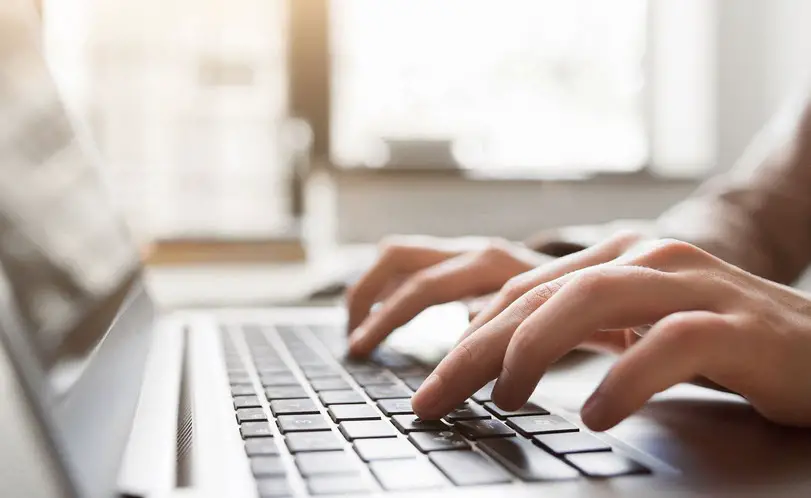Internet is something we got used to in our everyday life, but some people rarely think about the risks they get themselves in because of their actions online.
Checking social media, mailboxes, shopping and making payments – almost everything you do on the Internet can cause you trouble.
Hackers and scammers can easily track your online actions to obtain your personal information like financial data, which can be used to achieve their criminal goals.
To keep yourself safe online and protect your privacy, make sure to revise the following daily habits that make you vulnerable on the Internet.
- You tend to use the same password for all your accounts
We all realize that our passwords have to be strong, yes. But aside from creating long combinations of random letters, numbers, and symbols, it is highly recommended to make the password unique to each account. Otherwise, a hacker who gets access to one of your accounts automatically gains access to all of your accounts. You would not like this to happen, would not you? So be careful, create separate passwords and try to change them every few months (this one is the hardest, but raises the level of safety up high). We know it is a lot to remember, but it is totally worth it.
- You share on social media. Share too much.
It is so easy today to share everything you want to share with your relatives and friends, but just imagine for a second: the amount of personal data available out there online for every user is more than enough to learn a lot about almost any person without even meeting them! So here is the dark side: social media sharing can make you vulnerable to identity thieves.
 They can piece together all the information you share to hack your passwords as well as the answers to security questions. Running a background check is always a good idea to see how much about you can be revealed online. In case you found anything, you can try and opt-out from the major data brokers website on Onerep, more than 300 sources available.
They can piece together all the information you share to hack your passwords as well as the answers to security questions. Running a background check is always a good idea to see how much about you can be revealed online. In case you found anything, you can try and opt-out from the major data brokers website on Onerep, more than 300 sources available.
Our advice is not to indicate your location, not to reveal your birthday, your mom’s birthday or the important first things (like the first concert you ever attended or the first foreign country you have ever visited), and think twice before telling the world you are going away on vacation – some bad people might use the fact that your apartment will be uninhabited from this date to that date. It is always better to share some posts after you are back home!
- You use public Wi-Fi on a regular basis
Even though it is nice to set a makeshift office in a nice cafe or a coffee shop with free Wi-Fi, you should use it very carefully. Public Wi-Fi networks are unsecured and make it simple for hackers to see all your actions online while you use such a connection. If you have to connect to the Internet and have no other choice than using public Wi-Fi, never ever log in to your bank or social media accounts, and a good thing would be to use a virtual private network (VPN) – it will help to protect your sensitive data from strangers. VPNs serve as a tunnel around your information so potential thieves can not see all your data.
- You open unfamiliar emails right away
You have heard it a lot already, but we have to remind you: do not open any links or attachments in emails from unknown sender. Even if you are familiar with the sender, it won’t harm to think twice before opening the inclusions: the account of your friend or colleague might be hacked and they are not even aware of such outcoming messages.
Such emails can put you at serious risk of phishing. Phishers send emails with links or attachments. Once you click on them, it can trick you into disclosing your personal information or infect your computer with malware.
Be mindful with such emails, before you click on a link which appears to be received, for example, from a bank of yours, go directly to your bank’s website or call your bank representative to detect if the email is legitimate.
- You leave your computer unattended from time to time
Not all criminals use the latest technologies to hack your data. If you tend to leave your laptop, phone, or tablet unattended on a regular basis, you put your personal information at risk. Even if you leave your devices off-hand for a short period of time, while you are at the restroom or getting coffee, it still can make you and your personal data vulnerable. It is recommended to you lock your computer every time you are away. Additionally, you should protect your devices with a password that has to be entered each time.
To it sum up, the internet can be quite a dangerous place. Aside from the above, we suggest to always keep in mind the threats your online actions might cause.
Be careful with connecting with strangers – sometimes their intentions can be different from yours. Before you start any communication with a stranger, take some time to inspect his or her profile and think of any possible risk.
Be thoughtful with creating accounts for one-time use: just think of how many times you had to register on a website to get the information you need, and after that, you never used that website again but left the account active. As a result, you end up with a large number of online accounts you don’t even remember about. So one more advice is to keep a record of every new online account you create and delete the accounts you do not use.
Last but not least, try to avoid using autofill for your personal data, especially if it is your ID, social security number or credit card details. Yes, it takes some extra time log in, sign up or to complete an online purchase, but dealing with identity theft is much more time consuming and stressful.
We hope this article will be helpful for analyzing your internet actions and will encourage you to form useful habits to keep your personal information safe online.






